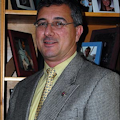Assessing What They LACK: Fire Service Leadership Skills
Editor's Note: The National Fallen Firefighters Foundation’s Courage to be Safe program identified four area where fire officers needed to improve their awareness, training and skills: leadership, accountability, culture and knowledge (LACK). This five-part series helps officers focus on each area for a more comprehensive understanding of the program.
Since 2004, the National Fallen Firefighters Foundation (NFFF) has championed the goal established by the United States Fire Administration (USFA) to reduce firefighter line-of-duty deaths by 50 percent. The Foundation’s “Courage to be Safe” program was launched in 2006 to reinforce the importance of personal safety and accountability, and to change the culture of accepting the loss of firefighters as a normal occurrence.
While teaching “Courage to be Safe,” Ron Siarnicki, executive director of the NFFF, and Richard Anderson, program director with the Foundation, realized an adjunct course specifically for first line officers was needed. They wanted to create a program that would help officers improve their teaching techniques and enhance their roles as effective leaders.
“We recognized that if the department leadership didn’t buy into the messages about the importance of safety on the job, then they certainly weren’t going to encourage or enforce it within their departments,” said Siarnicki.
Working with Robert J. Colameta, Jr., national program manager of “Courage to be Safe,” they identified Leadership, Accountability, Culture and Knowledge (LACK) as four critical areas where fire department officers collectively needed to improve their skills and training. LACK examines the root causes of line-of-duty deaths and the role these four characteristics play in preventing tragedy.
“LACK is designed specifically for the officer who has not embraced the 16 Firefighter Life Safety Initiatives,” said Siarnicki. “We hope that LACK training will inspire participants to go back to take ‘Courage to be Safe’ so that they have a comprehensive understanding of the programs.”
Each section of LACK addresses relevant, real-world events and how fire service officers need to be better prepared to do their jobs appropriately. Each new concept builds from the previous component, while personal stories and group discussions help reiterate the interdependency of these key themes and ensure cohesiveness in the program.
The course begins by addressing risk management on the fireground and in the station and their relationships to effective leadership. Scenarios are presented that require participants to assess if everything was done to prevent needless line-of-duty deaths. From these discussions, the program transitions to understanding accountability, not only for themselves and the personnel on the scene, but for the actions taken and how that impacts others. The course delves into the various cultural shifts occurring in firefighting, from health and wellness to attitudes and behaviors. It also emphasizes that training and education are imperative to the safety of all their departments.
“Officers must recognize that they have great influence on their department members, and it can be positive and encouraging,” said Colameta. “Life safety is the primary objective all the time. When officers learn more about leadership, they can hold themselves and others accountable, and can accept changes in training and culture, then they become better role models.”
The program was piloted at Firehouse Expo in 2009 and feedback was used to refine the messages and design the program. Instructor training began in early 2011 and continues through June. During that time, comments from participants will be gathered and the content revised regularly.
Following the model for “Courage to be Safe,” instructors will have access to a web site where they can download instructional modifications and new materials. This will help them stay current and customize lesson plans for their different audiences. This web-based method emphasizes adaptability and ultimately improves training.
“We have the latitude to make revisions and deploy to the field in a day or two, allowing us to more effectively reach the audience,” said Colameta.
- For more information or to register for Leadership, Accountability, Culture and Knowledge (LACK) Training, go to http://www.everyonegoeshome.com/about/.
VICTOR STAGNARO serves as the director of fire service programs for the National Fallen Firefighters Foundation, which includes the Everyone Goes Home and the Local Assistance State Teams. He has over 25 years of experience in the fire service. He was hired by the Prince George's County Fire/Emergency Medical Services Department in 1985 and served as firefighter and station officer and rose to the rank of deputy chief of emergency operations.
About the Author

Victor Stagnaro
For Firehouse.com
Victor Stagnaro joined the Foundation staff in 2010 and serves as the Director of Fire Service Programs, which includes the Everyone Goes Home®, and the Local Assistance State Teams. He has over 25 years of experience in the fire service. He was hired by the Prince George's County Fire/Emergency Medical Services Department in 1985. In addition to serving as a firefighter and station officer, he has been a fire instructor, Public Information Officer, Battalion Chief, Executive Officer to the Fire Chief, Fire Marshal, and Operations Shift Chief. Victor authored a chapter in Fire Engineering's Handbook for Firefighter I and II on EMS in the Fire Service. He retired as the Deputy Chief of Emergency Operations in early 2010. He has been involved with the Foundation dating back to 1998, when he served as the Incident Commander for the Memorial Weekend for several years and assisted with the New York Response Team on 9/11. Victor and his family reside in Annapolis, Maryland.